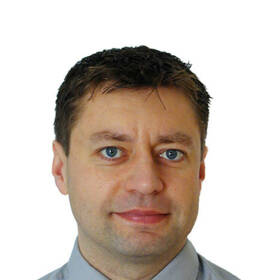New ways of educating and upskilling teachers, students and experts in the field of dietetics.
Background
It is estimated that more than 2.1 billion people in the world and 40 percent of the adult population in Europe are overweight. This is not without consequences. According to WHO, most non-communicable diseases (NCD) show a strong link with overweight/obesity, hypertension (high blood pressure), and hyperglycaemia. Not only do these pathologies affect the quality of life, they also have an economic and societal dimension. The impact of overweight alone, according to OECD data, is estimated to account for ten percent of health spending. As the reasons for overweight are bad eating habits and sedentary lifestyles in most cases, diet and physical activity can make a difference, have a decisive influence on people’s health, and be even as effective as pharmacological treatment.
Project Content
Given the rising number of people being overweight, the expertise of dietitians becomes increasingly valuable. However, practical education in nutrition science offered at Higher Education Institutions (HEI) is not as good as it could be and requires improvement. First, as other fields of education too, professionals in dietetics need to get familiar with and explore new forms of online teaching/ learning as well as bring them in line with the requirements of practical education. Second, more effort need to be put into strengthening the interpersonal skills of dietitians. This does not only require appropriate coaching but also experiential learning approaches, which enable dietitians to learn from their interactions with patients. Third, the third mission of the universities by including the communities and promoting students’ social commitment is of vital importance. Finally, it is a necessity that educators, health systems and policy-makers join forces to promote healthy nutrition.
Goals
The overarching goals of this project are to improve practical trainings in Dietetics Education and to pave the way for a community/service-learning approach in nutrition sciences that sees healthy habits as a social responsibility of the university. To this end, we develop and validate novel digital, educational tools, which facilitate interactive learning experiences. The specific goals are:
- to devise practical scenarios of Experiential Learning that are built upon the most relevant clinical cases and the general practice of community dietitians.
- to create new technologies that support dietitians in training and refining their Practical and Interpersonal Skills.
- to make higher education institutions aware of their Social Responsibility in promoting healthy and sustainable eating habits (as part of their third mission).
- to better align Education in Dietetics with the aims pursued by healthcare systems and policy-makers.
Methods
The project consortium creates a digital self-learning tool (i.e., digital lab with avatars representing patients). This includes co-designing the tool, collecting appropriate training material for it, and implementing it. The consortium also attaches great importance to create a long term impact. It makes the tool and knowledge accumulated during the project known through multiplier events and provides Higher HE lecturers as well as health system institutions with the developed tools and corresponding guidelines. Overall, the institutions of the consortium bring together a network of experts on education within the dietetics sector, explore new (digital) ways of teaching, involve students and dietitians when piloting learning activities, and combine the training approach with social interests. All this shall raise awareness for practical education in dietetics and the ways in which it can improve the health of European citizens.
Results
The main outcome of the project is a digital lab for education in dietetics (self-learning tool) to enrich and support existing training options. This tool not only enables students to take a practical course in dietetics without supervision, but is also useful for dietitians and trainers, who intend to acquire new competences. It can be adapted to different needs and scenarios and also allows to interact with individuals (potential patients represented as avatars) in a supervised mode. Specifically for community dieticians this is of great value, as they gather experience on the Dietic Care Process. To make the digital lab accessible and known to a wider audience of potential users a Multiplier Toolkit is provided. The toolkit contains information material on the methods introduced in this project. This includes reports, recommendations, journal articles as well as guidelines on how to incorporate the developed digital tools in the curricula of European Higher Education Institutes and in the programmes of training centres. Apart from the benefits for students, the lecturers, universities and the communities the results of the project also contribute to the European Dietetic Action Plan (EuDAP) that aims to strengthen the role of dietitians as educators and experts on advising the general population, other health professions, authorities and the media on health related issues.
You want to know more? Feel free to ask!
International Coordinator
Department of Health Sciences
Thomas Prola, UNEAT
- Fundación Universidad Europea del Atlántico, Santander (Spanien) (lead)
- Universidad de Valladolid, Valladolid (Spanien)
- Universidade do Porto, Porto (Portugal)
- Artesis plantijn Hogeschool, Antwerpen (Belgien)
- Uniwersytet jana Kochanowskiego w Kielach,Kielce (Polen)



